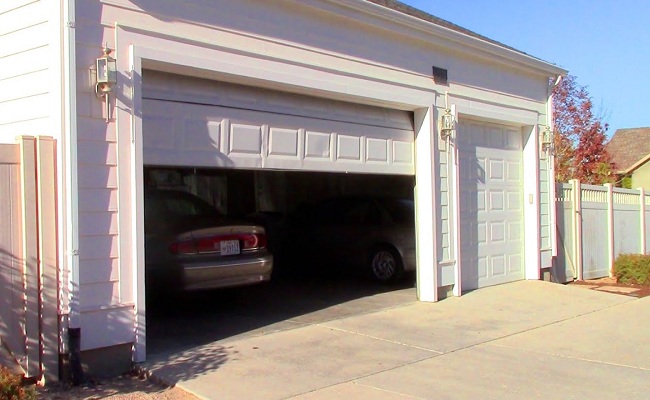We get it; you're on a roll! And as your DIY skills grow, you feel ready to tackle more projects around the house. So, now that your garage door is wonky, you may want to give it a whirl. What's the harm?
Or perhaps you should rely on a professional contractor like Titan Garage Doors. Whether you’re at a crossroads or simply weighing your options, adopting the right approach ensures safe and proper door repair. Let's look at potential scenarios calling for either DIY or professional help so you know the path to follow.
When DIY Repairs are Feasible
Unfortunately, some people fall victim to fearmongers who tell them it's too dangerous or difficult for a DIYer to repair a garage door. While certain risks are associated with self-repair attempts, you can complete minor repairs if you're familiar with the basics of door maintenance and repair and have the proper safety gear. Heck, you can save some dough while at it - who doesn't love that?
Well then, which repairs can you handle without a pro's involvement? The list below provides some insight:
●Lubricating components - If your garage door causes a stir when opening or closing, you don't need a pro to help you apply silicon spray to the moving parts. Often, lubricant helps avert issues and ensures components don't fall into disrepair.
●Bent tracks - You can fix minor dents on the tracks with a rubber mallet. Ensure to tap gently to avoid further damage. However, if the tracks have sustained major damage, you might have to bite the bullet and call a pro.
●Loose hardware - A rattling or jerky garage door may point to loose hardware. Mainly, this occurs due to temperature fluctuations, leading parts to expand or contract and, in turn, loosening of hardware. Thus, tightening screws, nuts, or bolts should do the trick.
●Changing dead batteries - Sometimes, garage doors fail due to simple issues we tend to overlook. Instead of hiring a pro, only to slap your forehead after realizing you only need to replace the remote's batteries, do it yourself. Also, check the sensor lens for dirt and clear the debris or dirt - you could avoid a hefty repair bill for an otherwise simple fix.
●Installing weather seals - Your door's weather seal may need replacement if you experience drafts or notice moisture seeping through the cracks. You can easily install a new weather seal to avert further damage. Nonetheless, ensure you order the correct size and type of seal. Or, remove the old seal and use it as a sample when buying a new one.
When to Call in the Pros
Although some repairs are in a DIYer's wheelhouse, others require a professional's involvement. If you can relate to any of the following, it's advisable to let a pro do their magic:
● Complex repairs or unfamiliarity with garage door components and their functions.
● Time isn't on your side - if you're hurrying to get the door up and running.
● You don't have proper safety gear or equipment.
● The door has sustained major damage.
● You want to avoid costly mistakes.
● You can't determine the cause of the malfunction.
Likewise, it won't hurt to turn to a pro if you're dealing with repairs to particular components. These include:
●Springs: If you're uninitiated and attempt to handle garage door springs, you may risk injury or worsen the situation - since the spiral usually unwinds rapidly. If your spring breaks, consider calling your go-to garage door company for emergency service.
●Opener - Although you may rely on online tutorials to repair a door opener, some issues, such as broken shafts and stripped gears, require specialized tools and knowledge.
● Panel - Replacing a section of the door may seem simple. However, it requires precision and accurate measurements to fit the panel properly.
● Cables and rollers - Much as you can replace these components, a pro ensures proper tension adjustment and alignment. Plus, if you botch the job, you may need to turn to a pro to fix the blunder.
Attempting to repair a garage door without knowledge of its construction is like trying to build a house without a blueprint. Repair may seem simple in concept until you realize the complexity involved in completing it. Instead of floundering or adopting a trial-and-error approach, consider the advice above and work with a professional technician if you're in doubt. But if you’re confident in your skills and have the necessary knowledge and tools, some DIY repairs aren’t off-limits.
